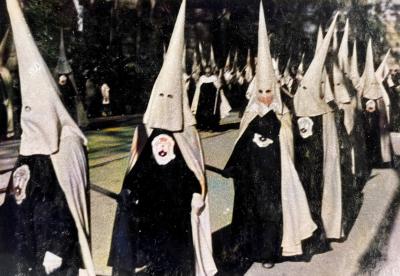How can travelers experience Mallorcan culture through its local language despite the dominance of Castilian Spanish?
Similar Topics
mallorcan culture
local language
catalan language
mallorquí dialect
castilian spanish
cultural immersion
mallorca traditions
authentic travel experience
Travelers seeking to immerse themselves in Mallorcan culture can gain a meaningful experience through the island’s local language, Catalan, despite the prevalence of Castilian Spanish. Catalan, and its particular Mallorcan variant known as Mallorquí, serves as a significant cultural marker and a living link to the island’s history and traditions. While almost everyone on Mallorca speaks Castilian Spanish, Catalan remains the co-official language and is often preferred in everyday communication, local media, and education. Engaging with Catalan by learning a few basic phrases or greetings can create a more authentic and respectful encounter with the island’s residents and heritage.
In towns and rural villages alike, the Mallorcan dialect is a vibrant part of daily life, shaping social interactions and community identity. Visitors who listen attentively or try to use Mallorquí phrases in markets, restaurants, or local festivals may notice a warm and appreciative response from locals. Cultural events such as folkloric dances, traditional music performances, and religious celebrations often feature songs and speeches in Catalan, offering an audible window into the island’s unique linguistic rhythm and history. Moreover, many shops and artisan stores display signage in both Castilian and Catalan, underscoring the islanders’ pride in their language and culture.
To deepen their linguistic experience, travelers might explore local media outlets, including newspapers, radio stations, and television channels broadcasting in Catalan. Such exposure enriches understanding of Mallorca’s contemporary social debates, arts, and daily issues from a Mallorcan perspective. Museums and cultural centers also provide written materials and guided tours in Catalan, where visitors can observe the nuances of local language and identity. By embracing Catalan, however modestly, tourists demonstrate a genuine interest that often fosters meaningful connections and insights, enhancing their overall appreciation of Mallorcan culture beyond the common tourist experience.
In towns and rural villages alike, the Mallorcan dialect is a vibrant part of daily life, shaping social interactions and community identity. Visitors who listen attentively or try to use Mallorquí phrases in markets, restaurants, or local festivals may notice a warm and appreciative response from locals. Cultural events such as folkloric dances, traditional music performances, and religious celebrations often feature songs and speeches in Catalan, offering an audible window into the island’s unique linguistic rhythm and history. Moreover, many shops and artisan stores display signage in both Castilian and Catalan, underscoring the islanders’ pride in their language and culture.
To deepen their linguistic experience, travelers might explore local media outlets, including newspapers, radio stations, and television channels broadcasting in Catalan. Such exposure enriches understanding of Mallorca’s contemporary social debates, arts, and daily issues from a Mallorcan perspective. Museums and cultural centers also provide written materials and guided tours in Catalan, where visitors can observe the nuances of local language and identity. By embracing Catalan, however modestly, tourists demonstrate a genuine interest that often fosters meaningful connections and insights, enhancing their overall appreciation of Mallorcan culture beyond the common tourist experience.
🧩 Related Questions
Related Question
How did Saint Teresa's personal prayer practices help elevate the significance of Saint Joseph in the Christian tradition?
Related Question
What outdoor activities besides cave exploration can travelers enjoy in Mallorca’s Serra de Tramuntana region?
Related Question
In what ways have alternative cultural festivals contributed to the decline of bullfighting in Mallorca?
